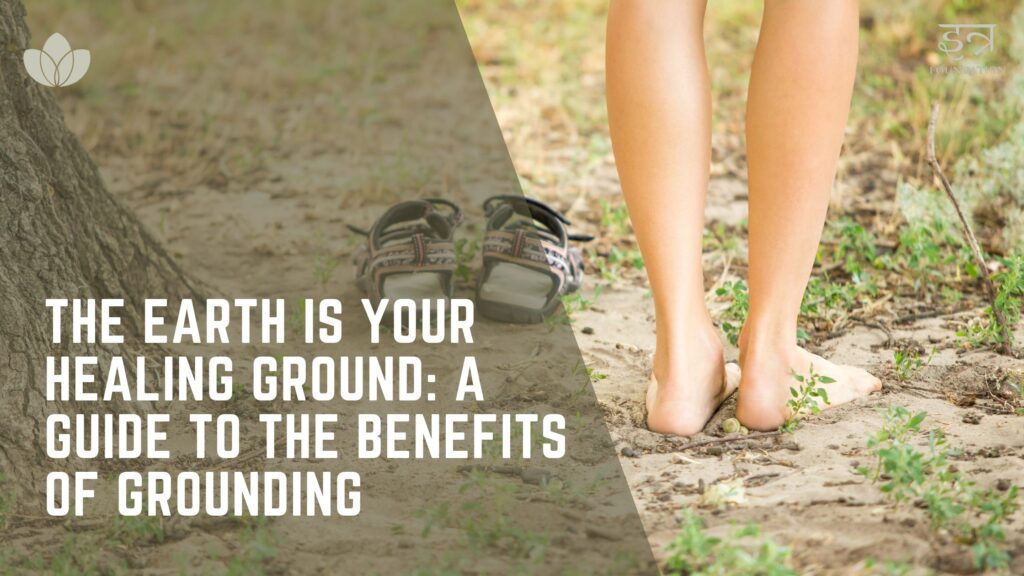Have you ever felt a sense of peace and tranquility while surrounded by nature? Whether it’s a walk through a forest, a hike in the mountains, or simply sitting by a lake, spending time in nature has a profound impact on our physical and mental well-being. But what exactly are the benefits of nature and why is it so important for our health? In this article, we will explore the physical benefits of nature and how spending time in the great outdoors can improve our overall health and well-being. From reducing stress and anxiety to improving cardiovascular health, the benefits of nature are numerous and far-reaching. So, come with us on a journey to discover the power of nature.
Physical benefits of nature
Reduces Stress: Spending time in nature has been shown to have a variety of physical health benefits. One of the most well-known benefits is the reduction of stress. Studies have shown that spending just 20 minutes in nature can significantly reduce stress hormone levels and lower blood pressure. In one social experiment, participants who walked for 90 minutes in a natural environment had lower levels of cortisol, a hormone associated with stress, compared to those who walked in an urban environment.
Improves Cardiovascular Health: Being in the midst of greens has a positive effect on cardiovascular health. A study published in the European Journal of Preventive Cardiology found that people who live near green spaces have a lower risk of cardiovascular disease, likely due to the reduced stress and improved air quality that comes with being in nature.
Improves Immune function: Nature can also improve immune function. A case study published in the journal Environmental Science & Technology found that people who spent time in nature had an increase in white blood cells, which are important for fighting off infections.

Boosts Physical fitness: In addition, nature can improve physical fitness. A research paper published in the International Journal of Behavioral Nutrition and Physical Activity found that people who regularly exercised in natural environments had lower body mass index (BMI) and better cardiovascular fitness compared to those who exercised indoors.
Improves Respiratory Health: Studies have shown that spending time in nature can help to reduce symptoms of asthma and other respiratory conditions. The clean air and natural environment can help to reduce inflammation and improve overall respiratory function.
Achieve Glowing Skin: Nature can also have a positive impact on our skin health. Studies have shown that spending time in nature can help to reduce symptoms of eczema and other skin conditions. The natural environment can help to reduce inflammation and improve overall skin health.
Chronic Disease Prevention: Nature can also help to reduce the risk of chronic diseases. Studies have shown that spending time in nature can help to reduce the risk of chronic diseases such as obesity, diabetes and heart disease. The natural environment can help to reduce inflammation and improve overall health.
Overall, these studies demonstrate that spending time in nature can have a significant impact on our physical health, from reducing stress and improving cardiovascular health to boosting immune function and promoting physical fitness. It is important to note that it is not just about the duration of time spent in nature, but also the quality of the time spent in nature, like spending time in a natural environment with less noise, pollution, and human-made distractions. Incorporating nature into our daily lives, whether through activities like hiking or simply spending time in a local park, can be an effective way to improve our physical health and well-being.
Mental benefits of nature
Being in nature can have a profound impact on our mental health. Studies have shown that spending time in nature can reduce symptoms of depression and anxiety. A study published in the Journal of Affective Disorders found that people who spent time in nature had lower levels of depression and anxiety compared to those who did not.

- Forest Bathing: One concept that has gained popularity in recent years is “forest bathing”, or “shinrin-yoku”, which originated in Japan in the 1980s.The term Shinrin-yoku was coined by the Japanese Ministry of Agriculture, Forestry and Fisheries in 1982, and can be defined as making contact with and taking in the atmosphere of the forest, usually for a few hours, and engaging in activities such as walking, breathing in the forest air, and listening to the sounds of nature. The idea encouraged individuals to go out in the forest. Studies have shown that forest bathing can reduce stress and improve overall well-being. A study published in the International Journal of Environmental Research and Public Health found that people who participated in a forest therapy program had lower levels of cortisol, a hormone associated with stress, and an improvement in overall well-being.
- Nature can also improve cognitive function. Studies have shown that spending time in nature can improve memory, attention and creativity. A case study published in the journal Environmental Science & Technology found that participants who took a walk in a park had improved working memory and attention compared to those who walked in an urban environment.
- Nature can also have a positive impact on our self-esteem and sense of self-worth. A study published in the Journal of Environmental Psychology found that people who spent time in nature had higher self-esteem and were more satisfied with their lives compared to those who did not.
- Nature can also help to reduce symptoms of attention-deficit/hyperactivity disorder (ADHD) in children and adults. Studies have shown that spending time in nature can improve attention span and focus, helping to reduce symptoms of ADHD. Children who spend more time in nature have also been found to have better cognitive development and problem-solving skills.
- Another key aspect of the mental benefits of nature is its ability to provide a sense of perspective and clarity. Being in nature can help individuals to detach from the stresses and demands of daily life, allowing them to gain a new perspective on their problems and feel more grounded. Studies have shown that nature can also have a positive impact on our sense of self-awareness and self-esteem. This can be attributed to the fact that nature has a calming effect on the mind and body, allowing individuals to feel more centered and balanced.
- Nature can also help to reduce symptoms of addiction. Studies have shown that spending time in nature can help individuals to overcome addiction and reduce the risk of relapse. Nature can help to reduce cravings, improve mood and provide a sense of perspective and clarity.
- Nature can also have a positive impact on our sleep patterns. Studies have shown that spending time in nature can improve sleep quality and reduce insomnia. The calming effect of nature can help to relax the mind and body, making it easier to fall asleep and stay asleep.
Environmental Benefits of Nature
Preserving nature is essential for maintaining a healthy planet. Nature plays a vital role in maintaining the delicate balance of our ecosystems, providing us with clean air and water and serving as a natural defense against natural disasters. Nature is also a major source of food, medicine and other resources for humans. In addition to these direct benefits, nature also provides valuable ecosystem services such as pollination, pest control and soil formation.

- Maintain Biodiversity: One of the most important aspects of preserving nature is maintaining biodiversity. Biodiversity refers to the variety of life on Earth and includes everything from the smallest microorganisms to the largest mammals. It is important for ecosystem stability and the survival of many species. Biodiversity is important because it provides the necessary conditions for the functioning of ecosystems and the services they provide, like water purification, pollination and climate regulation.
- Preserve Natural Habitats: Protecting endangered species and preserving natural habitats is crucial for maintaining biodiversity. Endangered species are those that are at risk of extinction due to human activities such as habitat destruction, pollution and over-exploitation. Preserving natural habitats is key to protecting endangered species, as it ensures that they have a place to live and thrive.
- Help Combat Climate Change: Another key aspect of the environmental benefits of nature is its ability to combat climate change. Nature plays a critical role in regulating the earth’s climate by absorbing and storing carbon, reducing the number of greenhouse gases in the atmosphere. Trees and other plants absorb carbon dioxide through photosynthesis and store it in their biomass, while wetlands, oceans and other ecosystems also play an important role in carbon sequestration.
- Preserves Water Resources: Preserving nature also helps to protect our water resources. Natural ecosystems like wetlands, forests and grasslands act as natural filters and purifiers, cleaning and conserving water. They also help to regulate the flow of water and prevent flooding. The destruction of these ecosystems can lead to water pollution, flooding and droughts.
- Provide Livelihood Resources: Nature also provides us with many useful resources, including food, medicine and materials for shelter and clothing. Many traditional communities around the world rely heavily on wild resources for their livelihoods. By preserving nature, we can ensure that these resources will be available for future generations.
- Economic Benefits: there are also indirect benefits, such as economic benefits. Nature-based tourism and recreation, for example, can provide jobs and income for local communities. In addition, preserving nature can also provide opportunities for scientific research and education.
In short, we can say nature plays a vital role in our physical, mental and environmental well-being. Preserving nature is essential for not only maintaining a healthy planet, and protecting biodiversity and endangered species crucial for maintaining ecosystem stability but also reducing stress and improving cardiovascular health to boost cognitive function, self-esteem and sleep quality, nature has the power to improve our overall well-being. It also helps in preserving biodiversity, protects endangered species and preserves natural habitats. The importance of preserving nature cannot be overstated, as it serves as the foundation for our survival and well-being.
It is important to take action to preserve nature, by visiting local parks, participating in conservation efforts and promoting sustainable practices. Each individual has a role to play in preserving nature for future generations. As John Muir once said, “The mountains are calling and I must go.” We must all heed this call and take action to preserve nature for ourselves and future generations. It is not just an option but a responsibility. Let’s work together to ensure that nature will continue to provide for us and that we will continue to protect it for future generations. Join our hands in promoting sustainable practices and be a part of ITRA Family which is driven to get you outdoors.






